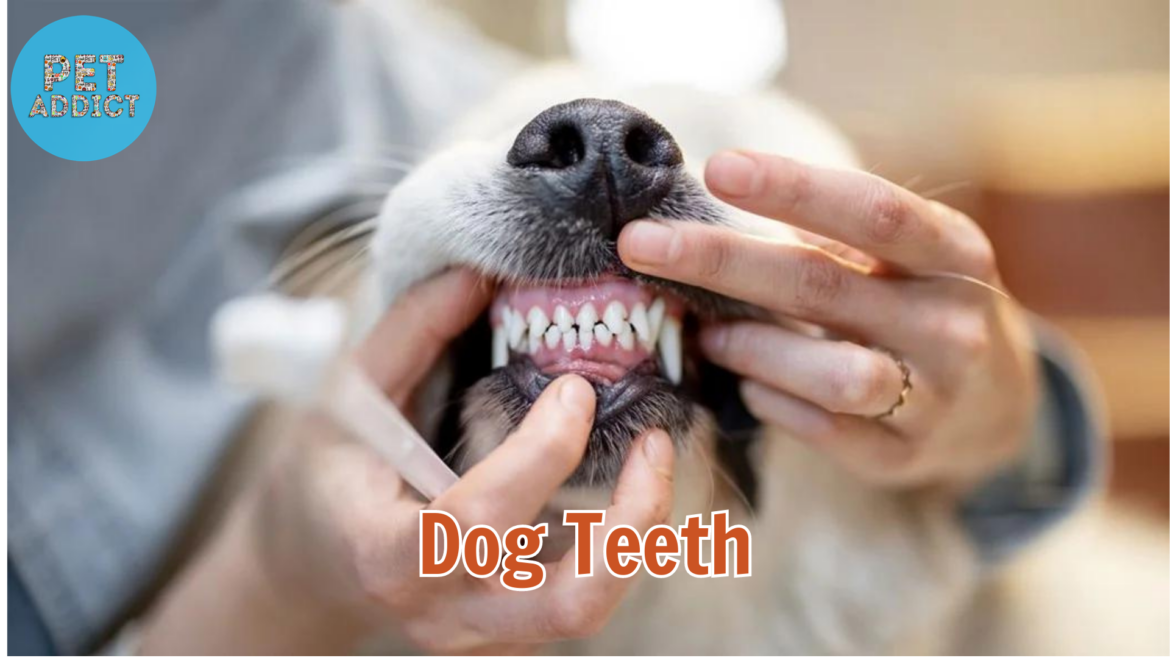As a responsible dog owner, it is essential to prioritize your furry companion’s overall health, and this includes their dental well-being. Just like in humans, dental care plays a vital role in maintaining a dog’s quality of life. In this comprehensive guide, we will delve into the world of dog teeth, exploring their anatomy, common dental issues, preventive measures, and the role of veterinarians in ensuring your pet’s dental health. So, let’s dive in and uncover the secrets to a healthy and radiant canine smile!
PetAddict.net – The best place where you can find everything about your pet!
Anatomy of Dog Teeth
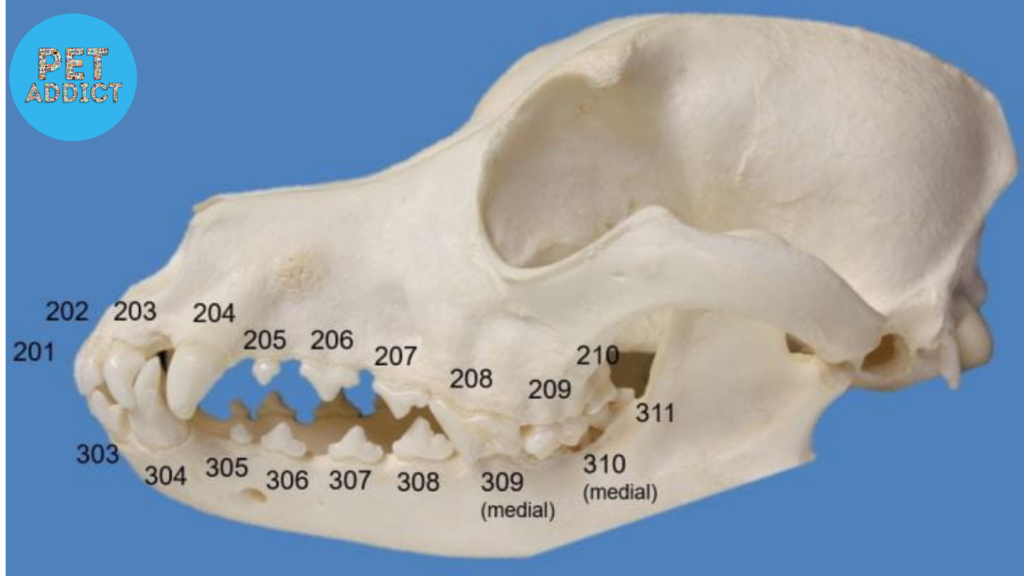
Understanding the anatomy of your dog’s teeth can provide valuable insights into their oral health. Dogs possess four types of teeth: incisors, canines, premolars, and molars. These different teeth serve various functions, such as tearing, cutting, and grinding food. Additionally, knowing your dog’s dental formula will aid in identifying any potential dental problems.
Common Dental Issues in Dog Teeth
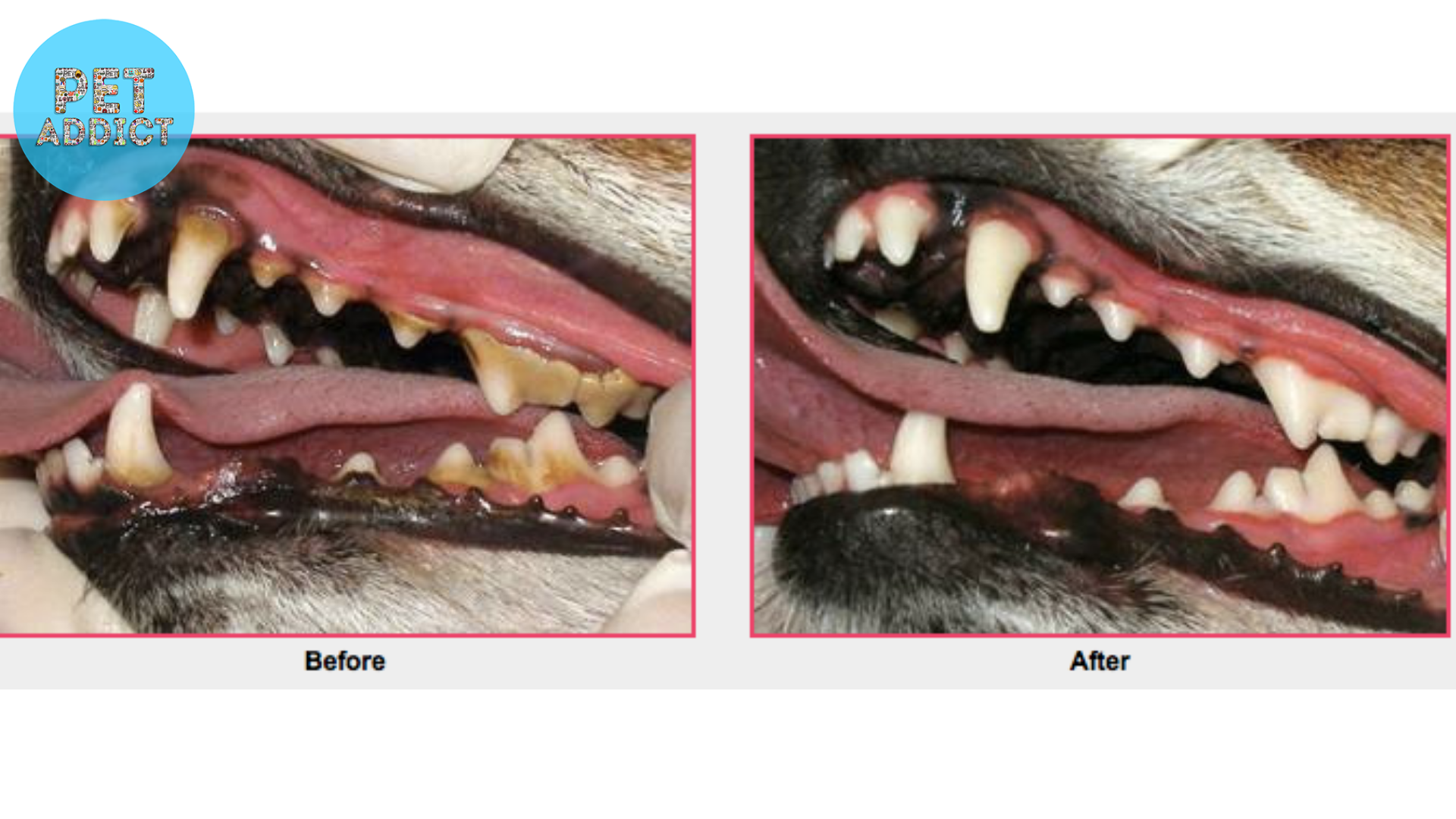
Dental problems are prevalent among dogs and can lead to discomfort and pain if left unaddressed. Dental plaque and tartar are among the primary culprits, which can eventually progress to gum disease and even tooth decay. By being aware of these common issues, you can take proactive steps to protect your furry friend’s dental health.
Signs of Dental Problems in Dog Teeth
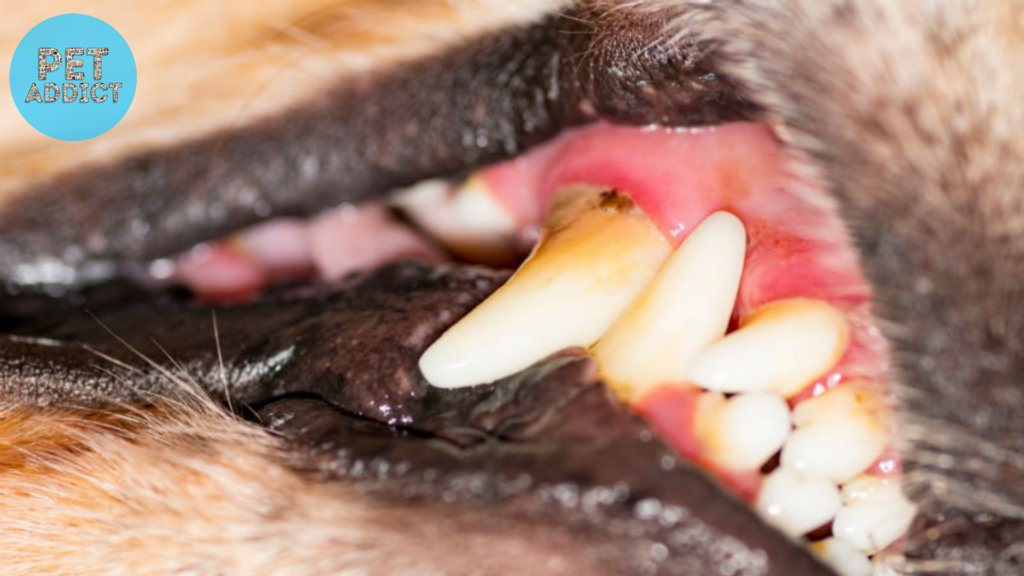
Detecting dental problems early is crucial for timely intervention. Keep an eye out for signs such as persistent bad breath, increased pawing at the mouth, reluctance to eat or play, and swollen or bleeding gums. If you notice any of these symptoms, consult your veterinarian promptly.
Preventing Dental Problems
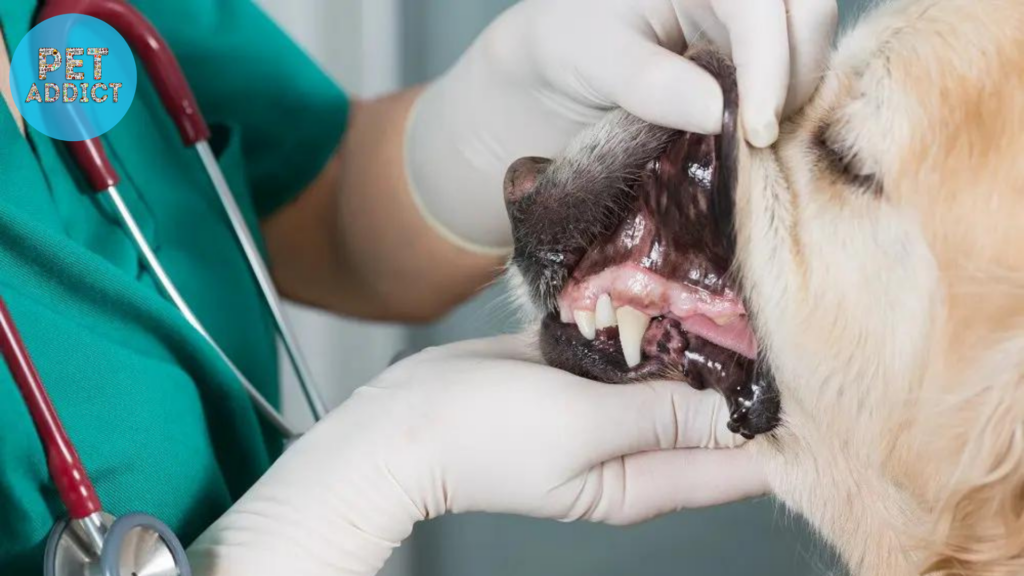
Prevention is the cornerstone of maintaining your dog’s dental health. Establish a regular dental care routine that includes daily brushing using dog-friendly toothpaste. Dental treats and toys can also help reduce plaque buildup. Additionally, schedule professional dental cleanings with your veterinarian to ensure a thorough oral examination.
Importance of Proper Nutrition
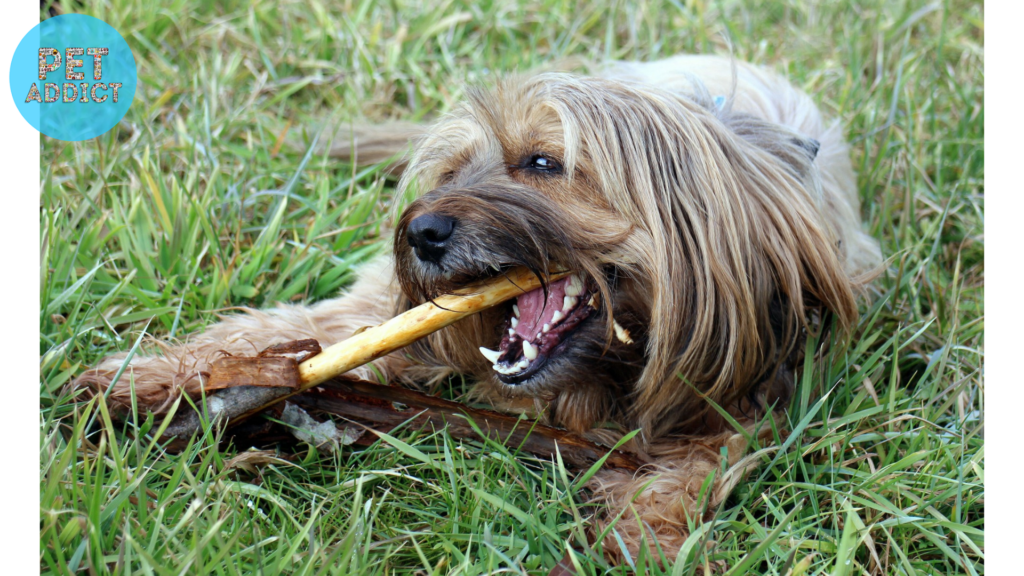
Proper nutrition is fundamental to your dog’s overall well-being, including their dental health. Incorporate dental-friendly foods and treats into their diet, which can aid in reducing plaque and tartar formation. Consult your veterinarian to determine the best dietary options for your furry companion.
Natural Remedies for Dental Care
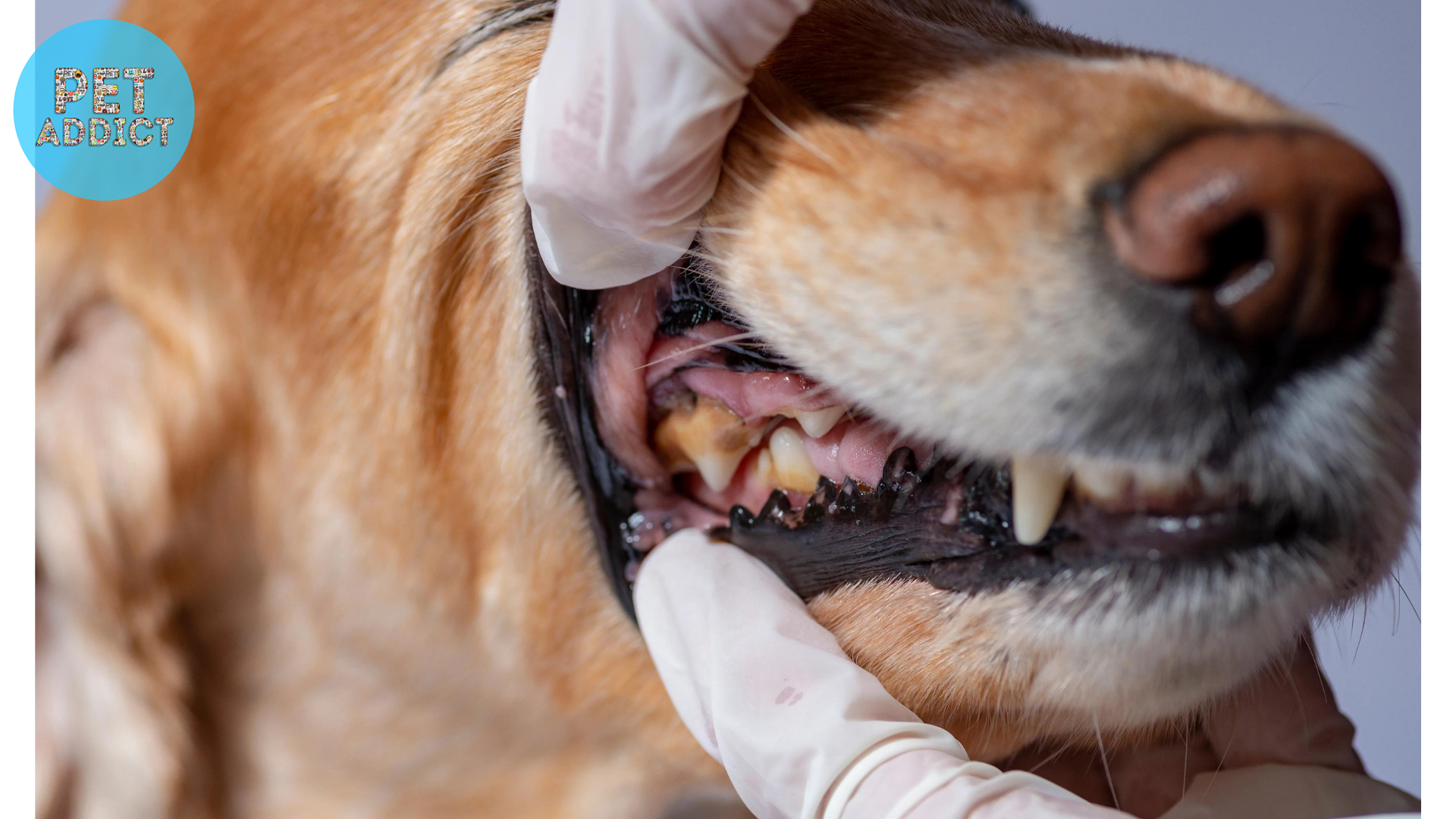
In addition to regular dental care, some natural remedies can complement your efforts in maintaining your dog’s oral health. Consider coconut oil pulling, which possesses antibacterial properties, or herbal dental rinses to help keep their mouth fresh and clean.
The Role of Veterinarians
Regular dental check-ups with your veterinarian are vital for your dog’s dental health. Veterinarians can perform thorough dental examinations and take X-rays if needed to identify any underlying issues. They can also provide professional dental cleanings to ensure your dog’s teeth and gums remain in optimal condition.
Dental Care for Puppies
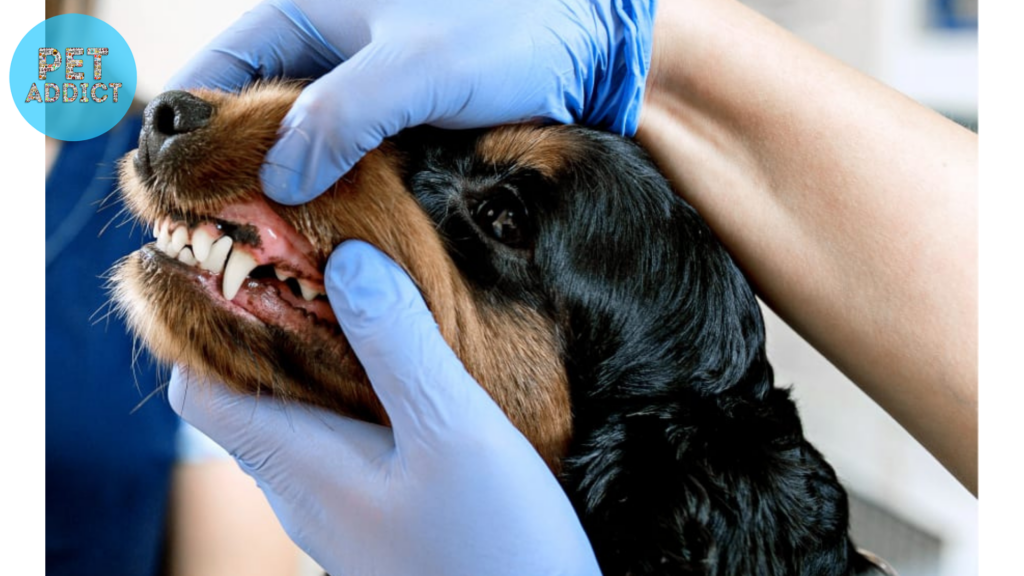
Early dental care is crucial for puppies to establish good oral hygiene habits. Begin introducing your puppy to tooth brushing at a young age, making it a positive and rewarding experience. This early training will pave the way for a lifetime of excellent dental health.
Handling Dental Emergencies
Knowing how to handle dental emergencies can make a significant difference in your dog’s well-being. In case of broken teeth or bleeding gums, seek immediate veterinary attention to prevent further complications.
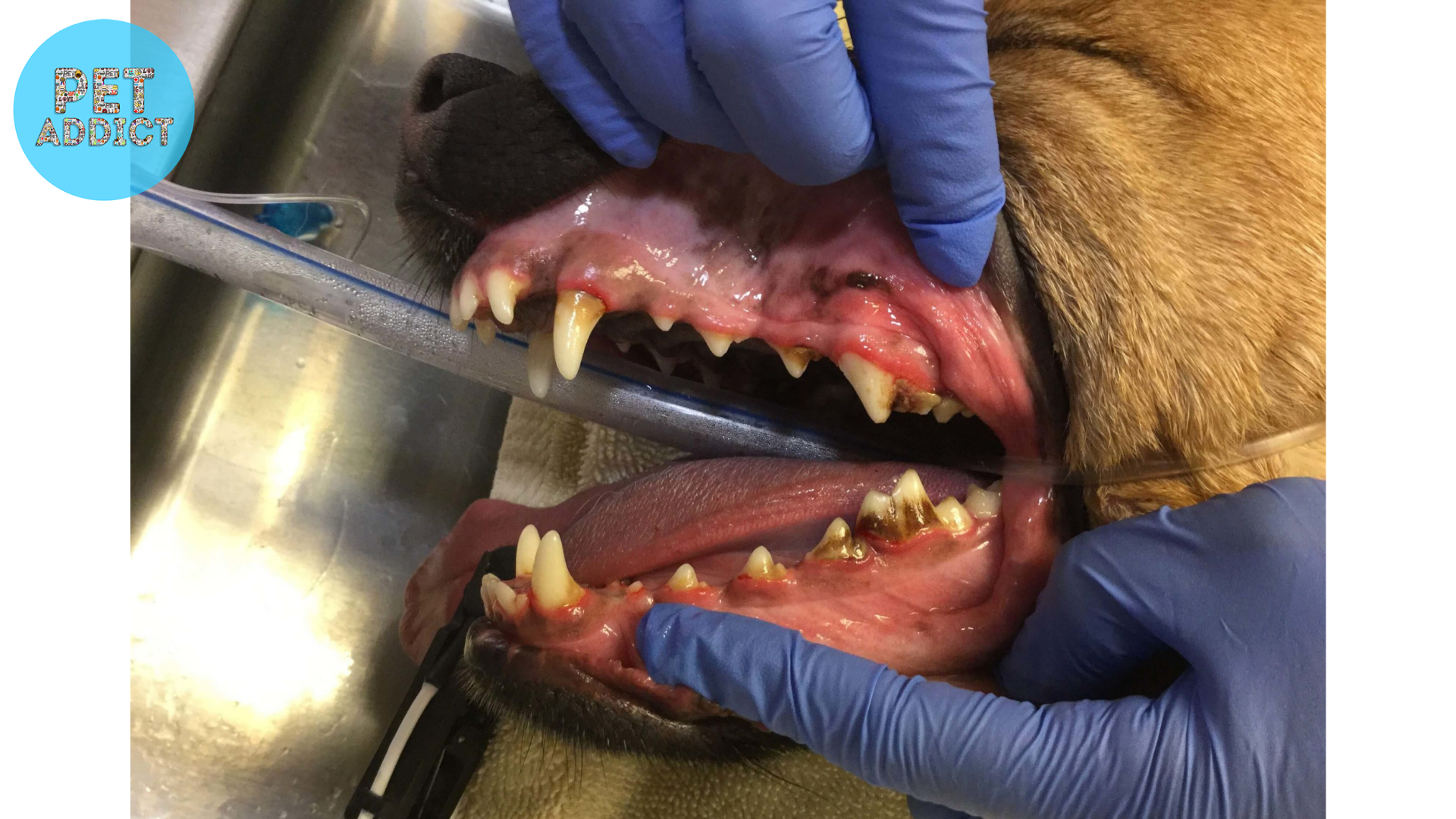
The Connection Between Dental Health and Overall Well-Being
Dental health extends beyond just the teeth and gums. Poor oral hygiene can affect your dog’s digestion, and nutrition, and may even lead to systemic infections. By prioritizing dental care, you contribute to their overall health and longevity.
The Best Dental Products for Dogs
Choosing the right dental products is essential for maintaining your dog’s oral health. Opt for veterinarian-approved toothbrushes, toothpaste, dental chews, and bones that suit your dog’s specific needs.
Conclusion
As a loving pet owner, it is your responsibility to ensure your dog’s dental health remains a top priority. By following a regular dental care routine, providing appropriate nutrition, and seeking professional veterinary care, you can keep your furry friend’s smile bright and healthy. Remember, a radiant canine smile is a reflection of their happiness and well-being.
FAQs
- How often should I brush my dog’s teeth?
- Aim to brush your dog’s teeth daily to maintain optimal oral health. However, even a few times a week can be beneficial.
- Are dental chews safe for all dogs?
- Not all dental chews are created equal. Choose high-quality, veterinarian-approved dental chews suitable for your dog’s size and chewing habits.
- Can I use human toothpaste for my dog?
- No, human toothpaste is not safe for dogs and can be harmful if ingested. Always use toothpaste specially formulated for dogs.
- At what age should I start caring for my puppy’s teeth?
- Begin dental care for puppies as early as 8 to 12 weeks of age. Early training helps them acclimate to the process and promotes a lifetime of good dental habits.
- How often should my dog have professional dental cleanings?
- The frequency of professional dental cleanings depends on your dog’s individual needs and dental health. Consult your veterinarian for personalized recommendations.

